The more you lick your lips, the drier your lips become! Dermatologist's Essentials for Lip Moisture
For chapped lips, do not apply lip balm directly
Compared with other parts of the body, the lips are a thin layer of mucosal tissue, without sweat glands and sebaceous glands, and cannot secrete sweat and oil, so they are easily affected by the external environment.
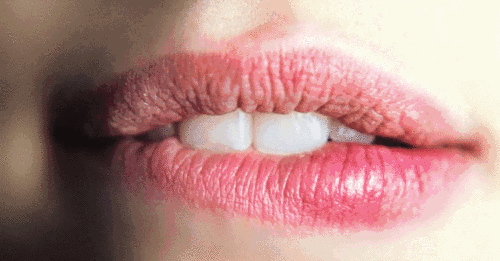
When the weather is dry, the lips are prone to dryness and peeling. When the lips appear erythema, dryness, scaling, chapped, edema, itching, or even burning, they may be suffering from cheilitis.
At this time, lip balm comes in handy.
Clean your lips before applying lip balm
Eat and drink water during the day, even if you apply lip balm, it will fall off, so it is recommended to apply it at night. Apply a lip balm before bed to moisturize overnight until the next morning, and your lips won’t be less prone to dryness.
If it is dry and cracked, apply water first, then apply lip balm
When the lips are already chapped, applying lipstick directly may not be effective, it is best to apply it with water first.
If there is chapped bleeding, it is best to pour cool pure water on a cotton pad and apply it on the lips to effectively stop the bleeding.
If it is only dry and there is no chapped bleeding, it is recommended to apply a damp and hot towel on the lips, which can effectively soften the lips, allow the lips to fully absorb moisture, and then apply lip balm to lock in the moisture.
Choose lip balms and avoid those with these ingredients
To prevent lip problems, avoid licking or biting your lips on weekdays. Although this can temporarily moisten your mouth, it will evaporate the moisture of the lips and aggravate dryness. When molting occurs, do not tear it with your hands, otherwise, it will aggravate the inflammation.
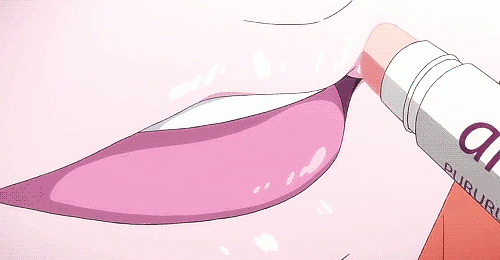
When choosing a lip balm, be sure to read the ingredient list carefully. Some products contain chemical ingredients that can irritate the lips; choose a lip balm product with little irritation, good moisturizing effect, and reliable ingredients.
Salicylic acid, phenol
Lipsticks that contain exfoliating ingredients such as salicylic acid and phenol should be purchased and used with caution. Salicylic acid works primarily by softening the cuticle, then peeling it off, quickly letting the dead skin on the lips leave.
The skin on our lips is extraordinarily thin, it is only about one-third as thick as the nearby skin. Regular use of lip balm containing salicylic acid can make lips thinner and more prone to chapped lips.
Mineral oil, mineral wax, or microcrystalline wax
These ingredients seal in especially well, like wrapping a layer of plastic wrap around your mouth. When they wrap around your lips, the lips will feel very wet and slack off. Over time, dependence will reduce the moisturizing ability of the lips.
Camphor or menthol
These ingredients will cool your mouth. Camphor is toxic to a certain extent and should not be applied to the mouth; while menthol will accelerate the evaporation of water.
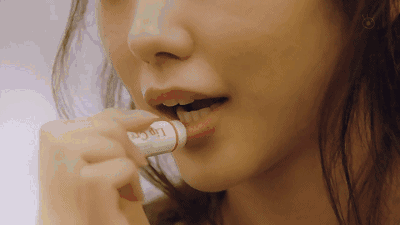
Recommended ingredients:
Moisturizing + Repairing Skin Barrier Selection contains these ingredients: Sodium Hyaluronate, Ceramide, Squalane;
The water lock contains these ingredients: castor oil, jojoba oil, petroleum jelly.
Recommended ingredients for severely chapped lips:
The chapped lips are particularly serious and even dry to the point of peeling. The lip balm you choose should preferably contain allantoin, glycyrrhizic acid, vitamin E, and, other special ingredients that can be anti-inflammatory, calm, and repair the lip skin.
3 things every day to keep your lips away from dryness
Loss of water is fast and it is difficult to lock in water. As a “vulnerable group” in the human body, the lips need your careful care.
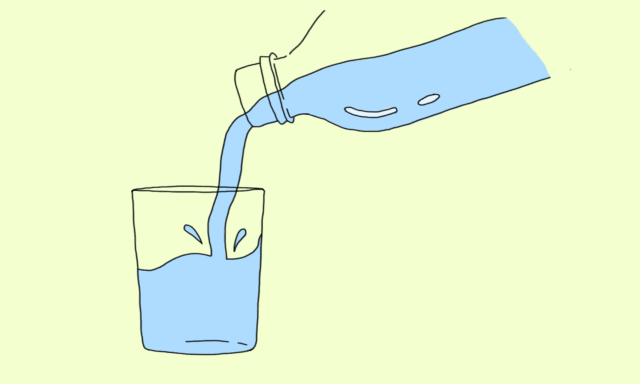
Strengthen moisturizing
Drink plenty of water at ordinary times and use a humidifier when necessary to improve the humidity of the environment. The correct choice of lip balm products, pay attention not to use frequently, it is generally recommended to use about 3 times a day.
Conditioning diet
Eat more eggs, dried fruits, beans, and fresh vegetables and fruits every day. These foods are rich in vitamin C and vitamin B2, which can nourish the lips.
Reduce external stimuli
Try to avoid external stimuli such as wind and sun, and wear a mask when going out to reduce the evaporation of moisture from the lips.
If the chapped lips are still not relieved after self-care, or even more serious, it is best to go to a regular hospital specialist to avoid delaying the treatment time.
Tip: Lipstick should be applied vertically
This is because the lines on the lips are vertical, but when people apply lipstick, they almost always apply it horizontally, which makes it difficult for the active ingredients to fully penetrate and nourish the lip lines, and even aggravate wrinkles, making it easier to dry and crack.
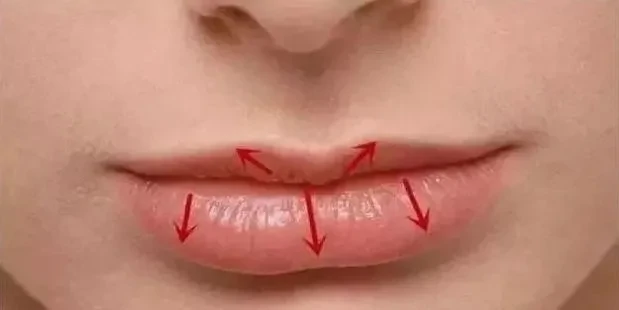
If you already have small cracks under your lip lines, it is easy to tear these small holes again when applying lipstick horizontally.
Apply lipstick vertically, in line with the law of lip lines, and the moisturizing effect is longer.
However, be aware that the skin on the lips is very fragile, so apply the lipstick gently to avoid irritation. When the weather is cold, the paste tends to become hard. It is best not to apply it directly, but to apply it with fingers, cotton swabs, or brushes.